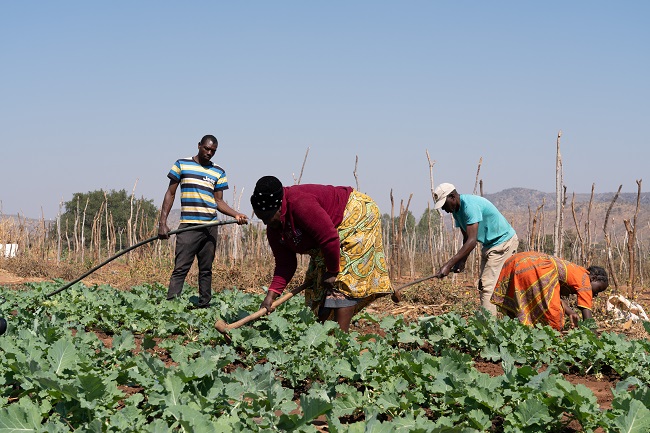– Germany’s agricultural cooperation with Africa and food sovereignty
– Advocacy for agroecological practices in African agriculture
– MEL’s policy shift towards sustainable agriculture in Africa.
Environmental organizations are urging the German government to prioritize food sovereignty and agroecological practices in its agricultural collaborations with African nations. A joint policy brief by Power Shift Africa and Germanwatch emphasizes that despite numerous interventions, Africa continues to face severe food insecurity, affecting millions across the continent.
The brief highlights that decades of investment in industrialized agriculture have left African smallholder farmers vulnerable and dependent on external inputs controlled by multinational corporations. Amy G. Thorp, Programs Manager at Power Shift Africa, stresses the need for the German Ministry of Food and Agriculture (BMEL) to shift its approach, ensuring that African nations have the right to control their agricultural future, especially in light of the escalating climate crisis.
The policy brief advocates for supporting African-led solutions and dismantling extractive trade structures to invest in climate-resilient, farmer-driven food systems. Lazarus Nanzala, Policy and Advocacy Advisor at SDG2 Advocacy Hub, asserts that true resilience lies in direct investment by African governments in local knowledge and equitable systems that empower communities to steward their land, seeds, and future.
This call aligns with BMEL’s recent policy shift towards sustainable and climate-adapted agriculture in Africa. In January 2025, BMEL, under Minister Cem Özdemir, introduced a new policy emphasizing partnerships for sustainable agriculture and food security. Özdemir highlighted the importance of creating opportunities that provide stability and good prospects, noting that sustainable agriculture and functioning food systems are pillars for peace and political stability.
Germany has also initiated the Agricultural Policy Dialogue (APD) with the African Union to foster exchange of knowledge and technology, aiming to develop local agricultural practices that are both sustainable and regionally appropriate. Key priorities include engaging young people and empowering women to support sustainable development in Africa.
